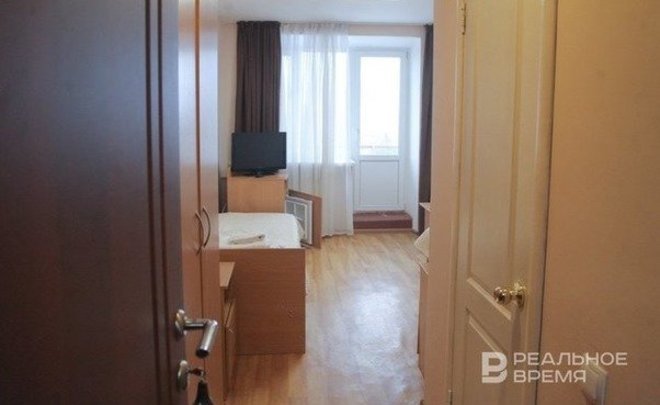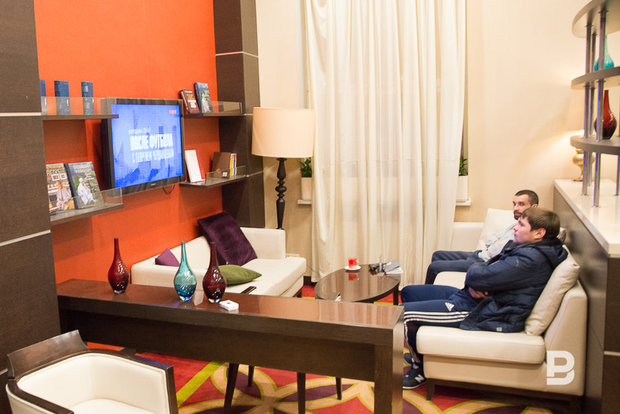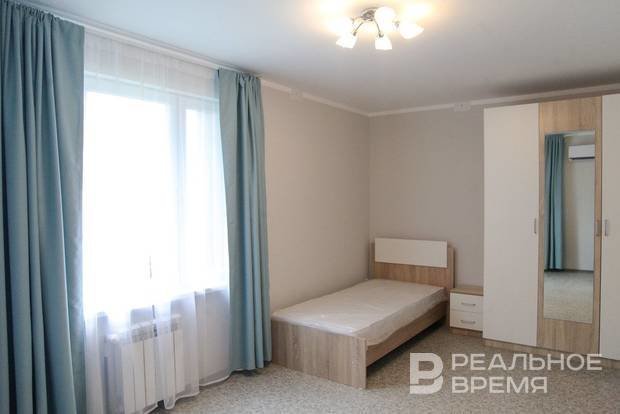‘Wishful thinking’: why coliving doesn't take root in Kazan
This type of housing has not even begun to develop normally in the capital of Tatarstan, expert says

The type of cohabitation such as coliving is actively developing in Western countries. It can be compared with Russian dormitories or Soviet communal apartments. In large Russian cities like Moscow and St. Petersburg, it is also gradually gaining momentum, but it has not yet fully developed. Сoliving almost didn't get to Kazan at all. As Vladimir Shaykhiev, the deputy director general of A-Development, says, this direction is not even developing at the moment, and people just indulge in wishful thinking. Details of what coliving is, what prospects it has in Tatarstan, and how much life costs there — read in the material of Realnoe Vremya.
Spiritual practices, rooms at the price of an apartment: what coliving in Kazan offer
The concept of coliving can be described as so-called mixed-use buildings. They combine many small bedrooms, common working, household or entertainment areas, for which entire floors are allocated.
To a greater extent, this concept is peculiar to the USA and UK. In the US, coliving began to develop with the New York company WeWork, which owns coworking spaces around the world. These are buildings with compact furnished apartments, the inhabitants of which only sleep and take a shower in them. For other needs, there are common areas — a kitchen, a workspace, a yoga studio, laundries, and even a SPA.
In the UK, the type of collective housing originates from The Collective project. The same small rooms of 10 square metres, and common areas satisfy all the needs of a modern person: spacious kitchens-living rooms for work and eating, a cinema, a gym, a library, and a roof terrace where one can arrange outdoor parties.
The concept of coliving can be reduced to a modified version of a Soviet communal apartment with more functional and well-maintained common areas. In today's world, when the boundaries between work and home, entertainment and education are blurring, people need a space where they can live, work, and communicate without having to search for like-minded people on the Internet and at parties. They are already nearby, in a holistic environment.

About four years ago, this kind of joint life was just beginning to take its first steps in Russia, similar projects are already actively working in Moscow, St. Petersburg and on the shores of the Black Sea. However, coliving is not developing in any way in Kazan yet. Finding a variety of options on the Web is not so easy. The first links that come across lead only to a couple of projects. So far, they look more like hostels with a certain cultural programme in the evenings, but no more. In one of these houses, for example, in the centre of Kazan, people “close in spirit and occupation” are taken as residents. To unite residents, the organisers of the coliving promise to hold master classes, workshops, and masterminds, “aimed at ensuring that residents and guests do not just live together, but help each other grow personally and professionally”.
Rooms in such houses have different prices: standard — 22 thousand rubles a month, comfort — 24 thousand rubles a month, and VIP apartments cost 26 thousand rubles a month. Guests are offered rooms from 17 to 28 square metres. The price includes all utilities, Internet, cleaning, parking, services for the maintenance of the territory, the use of a barbecue and a gazebo.
Another coliving, which first comes across in the search engine, promises spiritual practices. The owners of the apartments claim that they care about the world around them and people's health. They advocate healthy lifestyle (do not drink alcohol and do not smoke), prefer vegetarianism and are engaged in separate waste collection. Instead, they offer to grow food and flowers in the garden, sitting in a gazebo by the fire. As entertainment for the guests of the hostel, dance and meditation practices, film screenings, master classes, concerts with crystal singing bowls and hang, as well as the practice of standing on nails are organised. As it is indicated in the social networks of coliving, they have two cottages in Kazan and another in Sochi. At the same time, the price of accommodation is not indicated, in order to find out it, you need to contact the administrator and discuss accommodation issues with them.
“Coliving is more a story about developers who are engaged in the reconstruction of buildings”
As Vladimir Shaikhiev, the deputy director general of A-Development, says, coliving is, in fact, a commune. He looks positively at the development of this direction.
“But I do not know that it has developed in Kazan. In Moscow, yes, this is practiced. In our country, rather, they rather indulge in wishful thinking. There are people in Kazan who can do this direction. Coliving is primarily designed for young people who do not have children yet, free people. From a business point of view, apartments will always be rented for accommodation. It's very cool. With the right choice of location, optimisation of additional spaces, which is important. After all, this type of housing involves additional zones, but they do not bring money directly. It's more of an infrastructure story. With the right counterbalance of all this, it is possible to create an interesting product," the expert explained.

According to him, developers in Kazan are not focused on coliving. Vladimir Shaikhiev has not yet heard such proposals from them. As the interlocutor of Realnoe Vremya emphasised, coliving is a story more about apart hotels rather than about apartments.
“For example, there is a wonderful plot of land where you could make apartments, but you need to plant some commercial object there. But apartments don't have to have the status of an apartment, it can also be non-residential premises, that's why they are opened, but our developers are sharpened for large formats, mass construction. Coliving is more a story about developers who are engaged in the reconstruction of buildings, I do not think that it is developing from the zero cycle," concluded the deputy general director of A-Development.